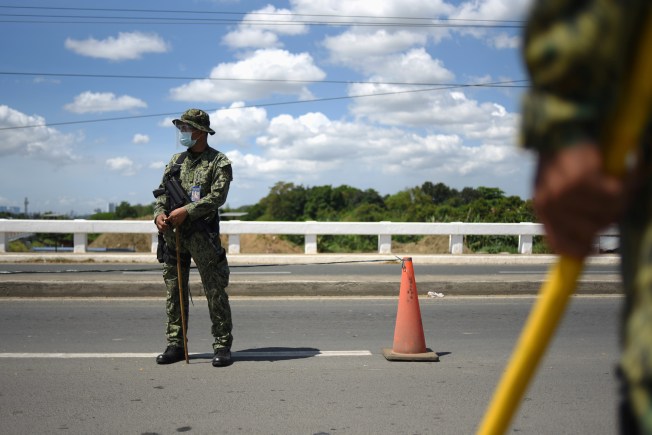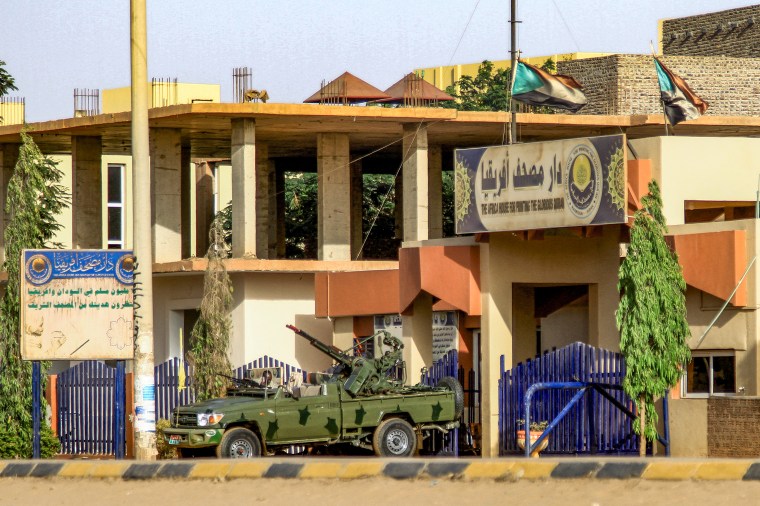The Torch is a weekly newsletter from the Committee to Protect Journalists that brings you the latest press freedom and journalist safety news from around the world. Subscribe here.
CPJ’s Middle East and North Africa team looked at the dangerous environment for journalists in Sudan as they cover the armed conflict that broke out April 15 between the Rapid Support Forces (RSF) and the Sudanese Armed Forces (SAF), former allies who jointly seized power in a 2021 coup. Hundreds of civilians have died, hundreds of thousands have been displaced, and thousands of foreigners have been evacuated. And journalists have been beaten, detained, and interrogated.
“You never feel safe while working,” Salem Mahmoud, a correspondent for Saudi broadcaster Al-Arabiya, told CPJ in a phone interview. “[Soldiers] can arrest you at any moment. And when they do, they can confiscate your equipment before letting you go.”
Read the full article here.
Separately, last week, together with the Permanent Mission of Ireland to the U.N. and the Permanent Mission of Ukraine to the U.N., CPJ launched the exhibition “Journalists are Not a Target: The Work of Maks Levin.” The exhibit showcased the life and work of Ukrainian photojournalist Maks Levin, who was killed last year while reporting on Russia’s war in Ukraine.
View photos from the opening reception here.
- Journalists attacked, critical outlets investigated in Turkey election aftermath
- Belarusian journalist Yauhen Merkis sentenced to four years in prison
- Imprisoned Myanmar journalist sentenced to additional 10 years on terror charge
- Congolese journalist Geonne Djokwa attacked with machete while covering protest
- Pakistani journalist Sami Abraham “abducted,” Imran Riaz Khan missing
Spotlight

In the early hours of May 31, two assailants on a motorcycle shot and killed Filipino radio journalist Cris Bundoquin in the city of Calapan, in Oriental Mindoro province.
“The senseless killing of radio reporter Cris Bundoquin shows that those who attack journalists remain undeterred under President Ferdinand Marcos Jr.’s one-year-old government,” said Shawn Crispin, CPJ’s senior Southeast Asia representative.
“Until the Philippine government shows it is serious about ending impunity in media murders, such killings will likely continue.”
The Philippines ranked seventh on CPJ’s most recent Impunity Index, which spotlights countries worldwide where journalists are slain and their killers go free. CPJ also recently documented how the new administration of Ferdinand Marcos Jr. has not displayed overt antagonism toward the media, but that journalists continue to await substantive actions to improve the safety of the press in the country after damage wrought by the former administration of Rodrigo Duterte.
What we are reading
- Voices of Defiance — Global Press Journal
- Most U.S. journalists are concerned about press freedoms — Naomi Forman-Katz and Sarah Naseer, PEW Research Center
- The Bruno and Dom project — Forbidden Stories
- ‘You will be killed’: Iran’s female journalists speak out on brutal crackdown — Deepa Parent, The Guardian
- The limits of Joe Biden’s calls for press freedom — Joel Simon, The New Yorker
A closer look | CPJ’s most-read features in May
- In Marcos Jr.’s Philippines, milder tone belies harsh media reality — Asia Program Coordinator Beh Lih Yi and Senior Southeast Asia Representative Shawn W. Crispin
- In Turkey, cautious optimism that tough election could be good for press freedom — Turkey Representative Özgür Öğret
- A deadly reporting field for Palestinian journalists — From CPJ’s “Deadly Pattern” special report
- How Israel probes journalist killings — From CPJ’s “Deadly Pattern” special report
- UN can help journalists beyond World Press Freedom Day — Director of Special Projects Robert Mahoney
Do you have an Amazon Alexa-enabled device? Enable CPJ's flash briefing skill to stay up to date with the latest press freedom news from around the world.
